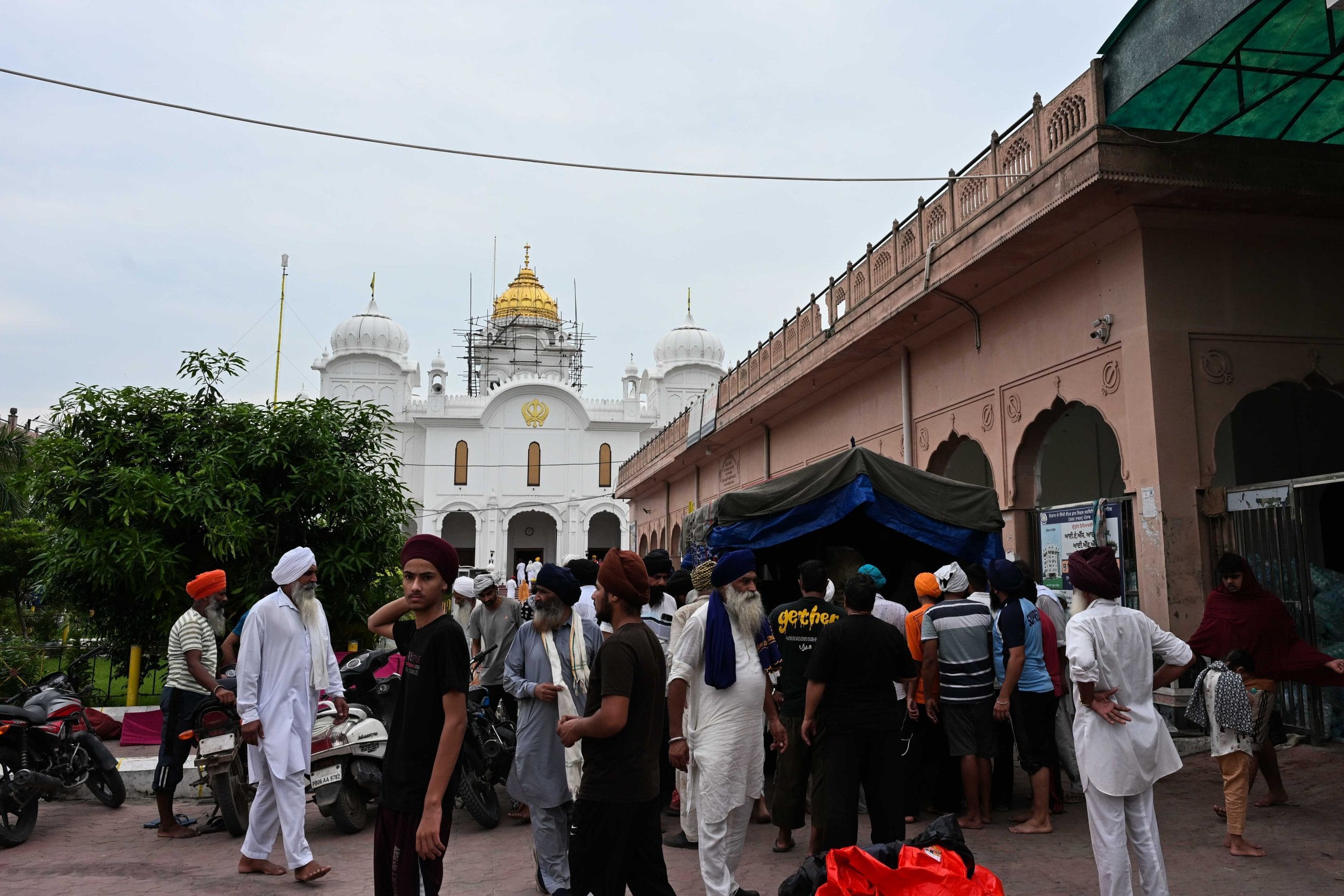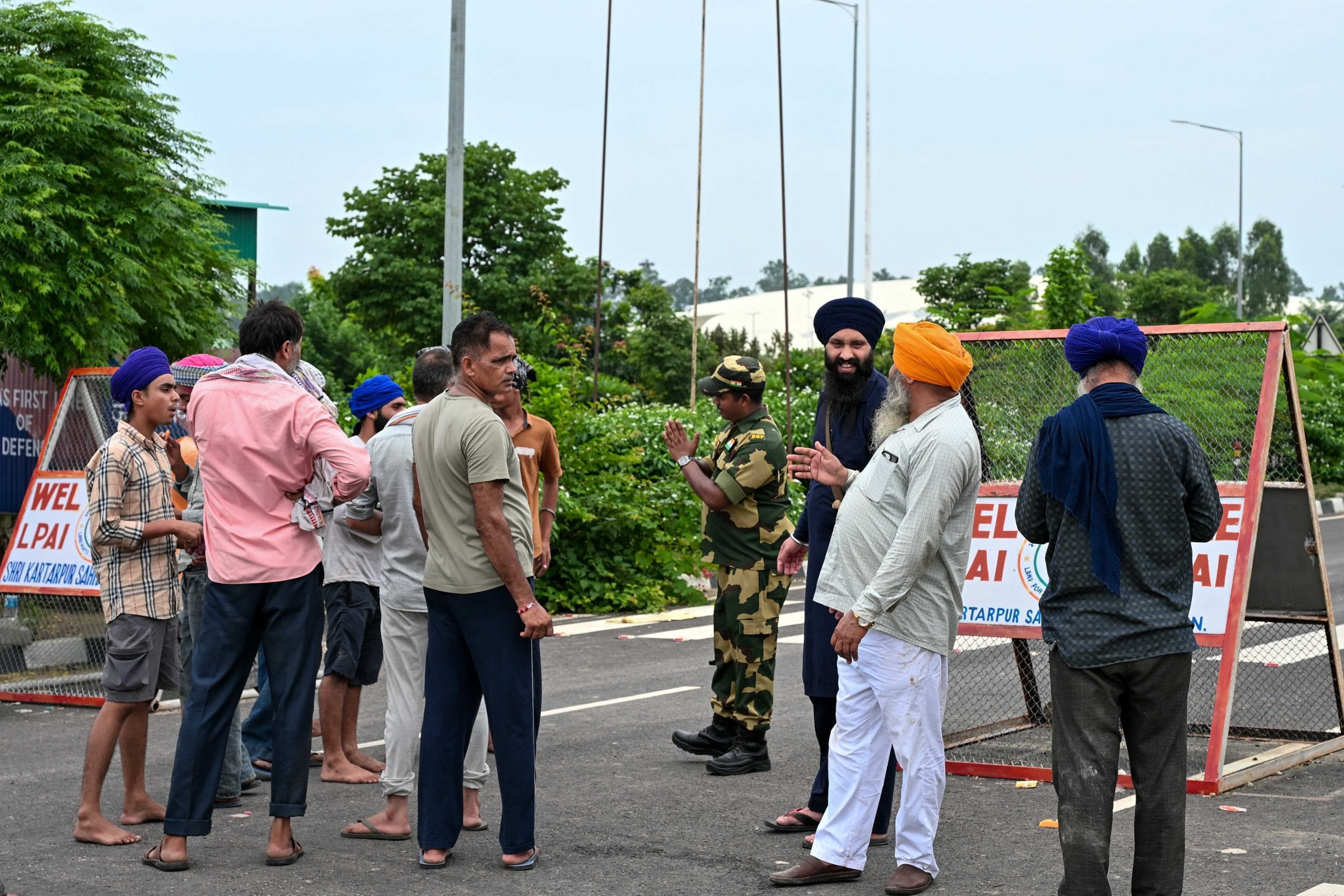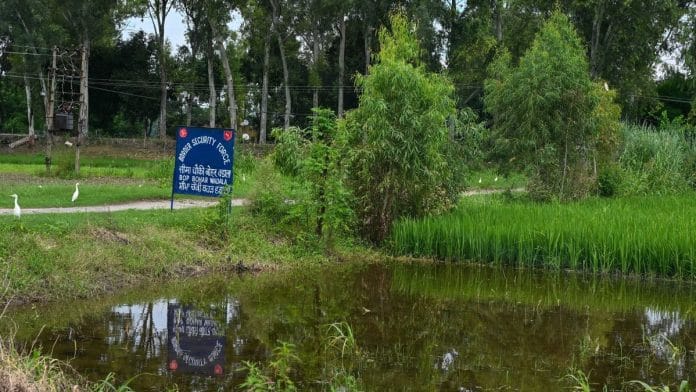Dera Baba Nanak (Gurdaspur): It is not just the villages and farms of Punjab that were battered by one of the worst floods since 1988.
The floods have inundated over 60 Border Security Force (BSF) outposts in forward areas, forcing personnel to vacate and move to the Gurdwara Sri Darbar Sahib in Dera Baba Nanak, a few kilometres from the India–Pakistan border.
Moreover, 100 kilometres of double-barbed wire fencing along the International Border has been washed away by the Ravi waters, raising the risk of possible security breaches.
A senior BSF official, on condition of anonymity, told ThePrint that personnel are using drones and motorboats to ensure intensified surveillance along the border.
The situation remains similar on the Pakistani side, with Pakistani Rangers vacating their forward posts submerged by the Ravi, the BSF personnel said.

Three months ago, security forces were deployed along the India—Pakistan border in Punjab and Jammu and Kashmir amid escalating tensions after India carried out a targeted attack on terror infrastructure in Pakistan.
Now, the overflowing Ravi has washed away fencing along the Punjab border.
The floods have also inundated hundreds of homes and farmland across Punjab.
“In the night, water entered the area where the checkposts stand, in the last week of August. It submerged several of our posts along the International Border (IB), resulting in heavy loss,” said a BSF personnel, who did not wish to be named.
He shifted from the flooded outpost to the gurdwara. “All the personnel moved overnight, taking whatever was valuable,” he said.
BSF personnel are now staying on the gurdwara premises.
“Many of the personnel left their belongings, and many others got drenched. The priority was to save their lives and get out,” said the personnel, sipping a cup of tea. The BSF did not expect that water would wash away the outposts and the fencing.
He added that the gurdwara people helped and sheltered them for the night.
Meanwhile, entry through the Kartarpur Corridor, a cross-border passage that allows Sikh pilgrims from India to visit a holy shrine in Pakistan, has been shut due to waterlogging.

The BSF guards 192 km of the International Border in Jammu and 553 km in Punjab, passing through the districts of Gurdaspur, Amritsar, Tarn Taran, Ferozepur, Fazilka, and Pathankot.
“Approximately 80 km of the fence in Punjab and 30 km in Jammu, along with nearly 20 BSF checkposts in Jammu and roughly 60 in Punjab, have been inundated or damaged,” said a senior government official, adding that nature had bridged the separation between the two countries. “Nadi ko nahi pata ki idhar Bharat hain aur udhar Pakistan. Vo toh bas behti hai. (The river does not know that India is this side and Pakistanis that. It just flows).”
“There is only water everywhere,” the official said, confirming the damage at the border posts.
“Some posts have been affected. But the border is still taken care of by our troops. On two sides of Ravi, both India and Pakistan remain flooded. Pakistani troops also left their border outposts because of the flood,” Jaspinder Singh, SDM of Dinanagar in Gurdaspur, told ThePrint.
At several outposts, BSF Air Wing helicopters, in coordination with the Indian Air Force and Army, have carried out multiple sorties to evacuate stranded troops from inundated posts.
BSF Inspector General (Punjab Frontier) Atul Fulzele visited flood-hit villages and posts in Ferozepur district to assess the situation on Sunday.
Restoring border fencing is a top priority
As the flood water recedes, the BSF is racing against time to return to its positions along the International Border.
“IB is a very sensitive area. The floods displaced our troops, but they have now started returning to their earlier positions. With the fencing washed away, we have started the work to repair it as an open border will be a security threat,” said a senior BSF official at the Punjab Frontier. “We cannot afford a border without fencing. So, our priority now is to remake the border in its earlier position.”
He admitted the loss is significant. “But our troops are active, and there was no breach of security,” he said.
Despite the flooding, BSF patrolling at the IB has not stopped. Personnel equipped with motorboats and surveillance drones continue to secure the border.
The troops remain vigilant, conducting patrols while also engaged in relief operations.
“We cannot leave the border. Despite the overflowing of water, we are patrolling at the border through drones, large searchlights and water boats,” said a member of a patrolling team staying at the gurdwara.
He added that the number of personnel at the checkposts was previously high, but it has dipped.
“The water is receding now, and we are seeing huge losses at the border. To return to the earlier situation, we need several days. Water is receding, but the area remains muddy. Troops are keeping a close watch on the status,” he said.
Meanwhile, the BSF has begun efforts to restore the fence and border outposts, so personnel can return to their positions as soon as possible.
It is not the first time BSF posts have gone underwater. In the 2023 Punjab floods, a rise in the Sutlej levels inundated and damaged several outposts and barbed wire fencing in Ferozepur district.
“But this year, the extent of the flood is different from the past. The loss is big at the border. The repair work has started,” said a personnel at the Kartarpur Corridor.
(Edited by Madhurita Goswami)
Also Read: ThePrint photos of the week: Floods in Punjab & the swollen Yamuna






